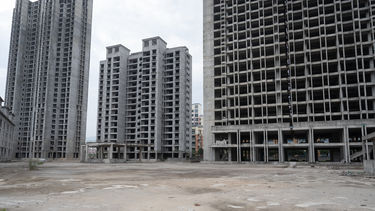The lecture
Icebergs, Zombies, and the Ultra Thin argues that finance capitalism has changed not only architectural forms, but also the very nature of our cities and societies. From Ireland’s devastated housing estates, to the chic luxury apartments of architect Rafael Viñoly’s 432 Park Avenue, investment imperatives shape what and how we build. Using photos and drawings of architectural phenomena I want to show how these processes have changed the way we live and make the urgency of these issues even more apparent. The global financial crisis of 2008 revealed the damage done by unchecked housing speculation, yet in the ensuing years, the use of architecture as an investment tool has only accelerated, heightening inequality and contributing to worldwide financial instability. We rarely consider architecture to be an important factor in contemporary economic and political debates, yet sparsely occupied ultra-thin “pencil towers” develop in our cities, functioning as speculative wealth storage for the superrich, and cavernous “iceberg” homes extend architectural assets many stories below street level. Meanwhile, communities around the globe are blighted by zombie and ghost urbanism, marked by unoccupied neighborhoods and abandoned housing developments. Where do these trends seem to be taking our cities, what are the consequences for urban society more broadly?
Professor Matthew Soules
Matthew Soules is a licensed architect and the director of Matthew Soules Architecture. In addition to teaching at UBC he has been Visiting Associate Professor at Harvard University’s Graduate School of Design and Visiting Faculty at SCI-Arc in Los Angeles. He is co-founder of Architects Against Housing Alienation (AAHA) – a national collective fighting for decommodified housing. The Canada Council selected AAHA to represent Canada at the 2023 Venice Biennale of Architecture. He is also the author of Binning House (ORO, 2017) and has contributed chapters to books such as Industries of Architecture (Routledge, 2015) and Post-War Middle-Class Housing (Peter Lang, 2015). His writing has also appeared in Log, Harvard Design Magazine, Real Review, Praxis, the Journal of Architectural Education, Canadian Architect, Topos, and 306090.

